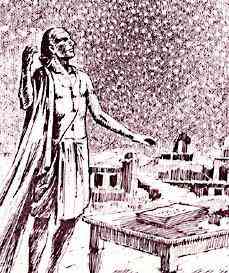Mother of all Sciences
Astronomy is often referred to as the mother of all sciences because of its historical influence on various other subjects such as philosophy and mathematics. But this title is most relevant now than ever, especially in the context of our modern education system. It is an irony that while teaching or learning a subject, we tend to forget how it links to the 'others'. For instance, you work with numbers in the maths class, talk about chemicals in the chemistry period, and ponder over forces in the physics class. Coding is the subject of discussion in the computer lab.
But Astronomy can include them all!
One of the very first measurements of the Earth's diameter and the distance to the Sun were made using trigonometry, Newton's laws of gravitation form the foundation of classical Physics, and our understanding of the composition, and hence the evolution of stars rely heavily on our understanding of chemistry. High power computing is required to extract useful information from the arsenal of data acquired by highly sensitive observing instruments and telescopes, on ground, as well as space.
Astronomy therefore not just acts as a medium to learn about various practical aspects of science and mathematics, enhance logical ability, and inculcate curiosity in young minds, but also offers a unique opportunity for educators to make learning fun and engaging, while providing a framework which brings the knowledge from various domains together.
It is therefore not surprising that ancient, distinguished scholars such as Aryabhatta in India, or John Herschel in England, are recognised for their expertise in multiple fields, including but not limited to astronomy, chemistry, mathematics and even new inventions and discoveries!
May 2, 2025


Connect with us
+91 9653 792 580 theastronomyclass@gmail.com
© 2025. All rights reserved.
Follow us on social media
Exercises in Astronomical data analysis for beginners
